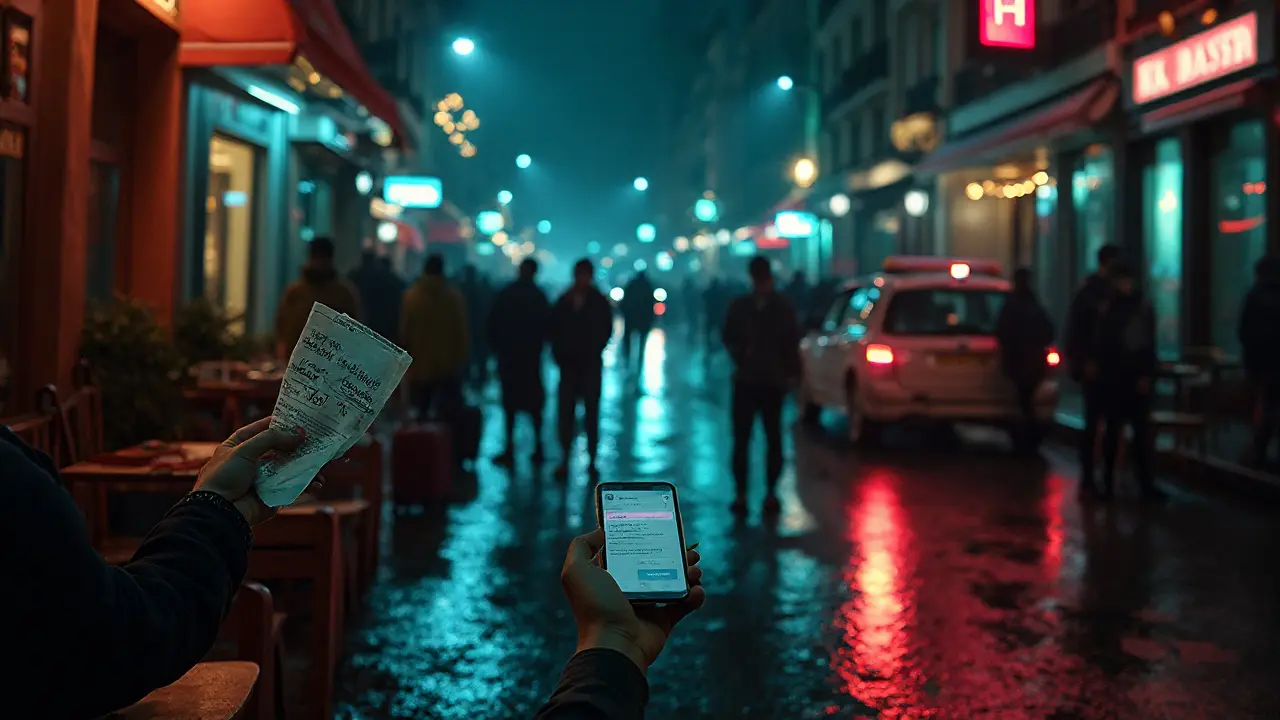You clicked because you want the kind of answer that actually helps: what this market looks like right now, how it’s structured, who makes money and how, and where the legal lines are in France. This isn’t a sales pitch. It’s a field guide to a complicated, high-risk, high-margin business operating in the shadow of a strict legal regime.
What you’ll get: a crisp snapshot of demand and pricing in Paris, the law as it’s enforced in 2025, how agencies and independents run day to day, where the risks really sit (payments, platforms, policing), and what’s coming next as the EU’s new platform and crypto rules bite. I’ll keep it plain, specific, and useful.
- TL;DR: Prostitution isn’t illegal in France, but buying sex is (since 2016); pimping and brothels are criminal offenses. Agencies operate in a narrow, risky space.
- Market: Strong demand tied to tourism, fashion weeks, trade shows; mid-tier rates cluster around €250-€500/hour, high-end can exceed €1,500/hour.
- Ops: Agencies rely on SEO, directories, encrypted messaging; payments are a squeeze (SCA, card bans, and stricter acquirers), so cash and discreet wires remain common.
- Compliance: The EU DSA (2024/2025 enforcement) and France’s ARCOM push platforms to curb ads; crypto is under MiCA, cutting off sloppy on-ramps.
- Risk map: Legal (procurement/pimping), financial (chargebacks, frozen accounts), and safety (coercion, trafficking) are the core hazards-mitigate or don’t play.
Paris 2025 Market Snapshot: Demand, Prices, Segments, Unit Economics
If you’re trying to understand the escort services in Paris market, start with demand drivers. Paris is a conference and luxury travel hub. International events, fashion weeks, and trade fairs punch above their weight, and client spend rises with hotel ADRs and corporate travel budgets. The 2024 Olympic year pulled forward global attention and money; the baseline in 2025 is still buoyed by high-end tourism and a weak euro against some currencies, which makes Paris feel cheaper to certain visitors.
Client segments are predictable but not simple:
- Business travelers on expensed trips who book last minute, midweek, and favor discretion.
- High-net-worth tourists who seek curated, high-end companionship (dinners, events, overnight).
- Local professionals seeking low-friction, short bookings, often evenings or weekends.
On the supply side, you see two broad profiles: independent companions running their own micro-brands, and agency-affiliated companions who trade autonomy for deal flow and admin support. Independents are more common than agency rosters suggest because directories amplify agency presence.
Pricing in Paris clusters by service scope and brand positioning. Hourly rates trend higher than many European capitals due to the luxury halo and customer mix. A realistic 2025 banding:
- Mid-tier: €250-€500 per hour, with 2-hour minimums common.
- Upper-tier: €600-€1,200 per hour; dinner-date packages €800-€1,800.
- High-end/elite: €1,500+ per hour; overnights often €2,500-€5,000.
Unit economics (agency view): 30%-50% commission on completed bookings is typical, plus upsells (longer bookings, travel fees). Add marketing (SEO, content, paid listings), verification overhead, and a decent share of no-shows. Independents trade lower marketing scale for higher margin but carry the full burden of screening, illegitimate inquiries, and payments friction.
Seasonality matters. Demand spikes during Paris Fashion Weeks (February/March and September/October), major art fairs, and high-season tourism (May-July). August can be odd-tourist-heavy but with more last-minute, shorter bookings. Rainy shoulders (November, January) skew to locals and business travelers.
| Segment | Typical Price (EUR) | Booking Length | Channel Share (est.) | Notes |
|---|---|---|---|---|
| Mid-tier city bookings | €250-€500/hour | 1-2 hours | Directories/SEO: High | Price-sensitive; higher no-show risk |
| Dinner/date packages | €800-€1,800 | 3-5 hours | Agency/Independent: Split | Stronger screening; lower cancellation |
| Overnights | €2,500-€5,000 | 10-12 hours | Agency: Higher | Heavy screening, deposits expected |
| High-end hourly | €1,500+ /hour | 1-2 hours | Referrals/Private | Brand-driven; repeat clients |
How big is the market? No one has a precise number, and anyone who claims one without caveats is selling you something. A practical way to think about it: start with nights spent by international visitors (Île-de-France counts tens of millions annually), apply a tiny conversion rate (well below 1%), and map average ticket sizes from the table above. You’ll land on a market that clears hundreds of millions of euros in annual gross bookings at Paris scale. This aligns with qualitative signals from hotel ADRs, luxury retail receipts, and the density of agency listings. Treat any single number as an estimate, not a truth.
Two macro pressures in 2025: platform gatekeeping and payments. The EU Digital Services Act (DSA) increased content moderation on very large platforms, making explicit ads harder to keep online. At the same time, acquirers have tightened onboarding for high-risk merchant categories. The result: more traffic flows to private directories, encrypted messaging, and direct referrals, and more payments are either cash, discreet bank transfers, or regulated crypto rails under MiCA-compliant providers.
France’s Legal Framework and Real-World Enforcement
Here’s the blunt legal picture in France:
- Prostitution itself is not criminalized.
- Buying sexual services is penalized since Loi n° 2016-444 (13 April 2016). Clients face fines and mandatory awareness courses.
- Pimping/procuring (proxénétisme) is a felony under the French Penal Code (Art. 225-5 to 225-10-1). The definition is broad: facilitating, benefiting from, or organizing the prostitution of others can qualify.
- Brothels have been banned since the 1946 Marthe Richard law.
- Public solicitation rules have evolved; the 2016 law repealed the offense of passive solicitation but strengthened actions against demand.
So where do agencies fit? Carefully. A pure “classifieds” site that charges for ad placement stays closer to a publishing model. But when an agency coordinates logistics, negotiates prices, sets schedules, or takes a cut per booking, prosecutors may see “facilitation” or “benefit from prostitution” and build a procuring case. The threshold is fact-specific, and enforcement can be uneven across jurisdictions.
Authorities involved: the Paris prosecutor’s office, the Brigade de Répression du Proxénétisme, and the Office central de lutte contre la traite des êtres humains (formerly OCRTEH) for trafficking. On the platform side, ARCOM (France’s media regulator) and DSA enforcers can pressure hosts to remove illegal ads or tighten policies.
Advertising is constrained. Mainstream ad networks ban promotion of sexual services. Social platforms block it at the policy level; DSA compliance pushes them to remove more aggressively. Adult directories operating from outside France face domain and payment pressure if they ignore takedown requests. This is why operators emphasize SEO, private communities, and invite-only channels.
Payments sit at the crossroads of law and risk. Card networks label adult services as high-risk; onboarding often fails at KYC or underwriting. PSD2’s Strong Customer Authentication hardened checkout flows, but many agencies never get that far-acquirers decline them outright. Workarounds (coded descriptors, off-shore entities) invite account closures and worse. MiCA (EU crypto regulation) now requires licensed providers and stricter AML, so sloppy crypto acceptance is disappearing; regulated stablecoin rails are the only defensible path, and even then, counterparties demand clean KYC.
What happens to clients under the 2016 law? Police can issue fines (contravention) and mandate awareness training. Repeat offenses escalate penalties. The law also funds exit programs for sex workers, administered by accredited associations. Courts take procuring seriously; sentences can include prison, asset seizure, and bans from operating businesses used to facilitate offenses.
Compliance heuristics to avoid red lines (not legal advice):
- Never set pricing on behalf of companions; publish ad fees only.
- Don’t control schedules, routes, or impose quotas. Autonomy matters.
- Separate publishing (flat ad fees) from any concierge-like services; bundling them increases risk.
- Document KYC to screen out coercion, minors, and trafficking; have a protocol to report red flags.
- Keep all communications and payments records clean; prosecutors read messages literally when building intent.
Primary sources to consult: French Penal Code Articles 225-5 to 225-10-1 (proxénétisme), Loi n° 2016-444 (penalizing the purchase of sex), the 1946 Marthe Richard law (brothel ban), and platform compliance notes from ARCOM and the European Commission’s DSA guidance. For trafficking, review reports from the Interior Ministry and the national rapporteur on trafficking.

How the Business Actually Operates: Channels, Ops, Payments, Safety
Strip away the mystique and you get a service marketplace with three bottlenecks: discovery, screening, and settlement.
Discovery. With mainstream ads off the table, agencies and independents rely on:
- Directories: Adult-focused listing sites with SEO moat. Paid placements, featured spots, and review ecosystems drive visibility.
- Organic search: Long-form profiles, multilingual pages, and local intent keywords. This is slow but defensible traffic.
- Private communities: Encrypted messaging groups, invite-only forums, and vetted review clubs.
- Referrals: The most valuable channel at the high end; repeats mitigate screening costs.
Screening. Everyone screens for safety, fraud, and time-wasters. Typical signals: verified ID (held offline and secured), social or workplace footprint (for professionals), deposit willingness, and pattern checks (inconsistent stories, pushy behavior, last-minute address changes). Agencies centralize this; independents crowdsource via bad-client lists and mutual verification circles.
Booking flow. A clean flow looks like: inquiry → quick fit check (time/date/location) → screening (ID/deposit) → confirmation with narrow window → clear boundaries and logistics → post-meeting check-in. The more moving parts, the more no-shows. Two-hour minimums and deposits are not just about price; they filter out noise.
Payments. Cash is still king because it’s simple. For non-cash:
- Bank transfers/SEPA: Discreet descriptors; require planning; sometimes used for deposits only.
- Cards: Hard to maintain at scale; merchant accounts get pulled; high chargeback risk.
- Crypto: Possible via MiCA-regulated providers and travel rule-compliant exchanges; needs client education and strict AML/KYC.
Chargebacks and fraud are the biggest financial drains. Rules of thumb:
- Pre-authorize or collect a small deposit for mid-tier bookings; larger fixed deposits for overnights.
- Never accept P2P payment from third parties; name mismatch is a red flag.
- Keep invoices generic where lawful, and keep records consistent with published services (companionship/time-only framing).
Operations and costs. An agency’s monthly P&L rides on a few lines: marketing (SEO/content/photography), roster management, bookings team coverage (nights and weekends), legal/accounting, and chargeback/fee leakage. High-quality photography and translation to English/Arabic/Chinese can measurably lift conversion with international visitors. Logistics (car services, hotel protocols) reduce friction and risk.
Safety and ethics. This is non-negotiable. Look for:
- Trafficking screening: Verify age beyond ID (live checks), look for signs of coercion (scripted answers, no control of phone, someone else taking payment).
- Venue safety: Hotels with clear guest policies; avoid private apartments without verification.
- Crisis protocols: Silent words, live location to a trusted contact, timed check-ins, and escalation paths.
- Wellbeing: Reasonable caps on daily bookings, no-penalty cancellations for safety concerns.
Marketing that works in 2025 respects the DSA reality. Don’t fight platforms; outlast them. Useful content (city guides, etiquette, FAQ), schema markup, and fast multilingual pages beat throwaway domains. Affiliate schemes need compliance guardrails: strict creatives, no exaggerations, and ban on minors/college tropes. Review sites with credible moderation add trust; fake reviews backfire and can be evidence in court if they misrepresent control.
Pro tips from operators who survive the long game:
- Use unique, human photography and consistent brand voice; stock-like images hurt conversion and trust.
- Prioritize scheduling discipline: tight time windows reduce cancellations by 20-30% compared to open-ended “tonight?” slots.
- Keep a light CRM: even a spreadsheet with client notes (preferences, reliability) saves hours weekly.
- Hire bilingual staff for peak windows tied to international events; response time drives booking odds.
- Train on boundaries and scripts; clarity reduces disputes and keeps legal framing clean.
What’s Next: Risks, Regulations, and Realistic Scenarios (2025-2027)
Three forces will define the next two years: platform enforcement, regulated payments, and verification tech.
Platform enforcement. The EU DSA is now in the “show me” phase. Very Large Online Platforms ran risk assessments and are tightening adult content and solicitation policies under regulator pressure. Expect more content removals, stricter ad rejection, and faster domain-level actions on repeat violators. ARCOM’s stance has hardened since the age-verification battles in 2023-2024; while that fight targeted porn sites, the compliance muscle memory now extends to ads for sexual services.
Payments. PSD2 is old news, but underwriters are not relaxing. High-risk MCCs face shorter leashes; expect surprise terminations and rolling reserves. PSD3/PSR reforms (moving through the EU pipeline) aim to strengthen fraud prevention-good for consumers, but it adds more friction for high-risk merchants. Crypto under MiCA will trend toward fewer, better-regulated on-ramps. Unregulated processors will shrink, and banks will look through to the ultimate purpose of funds.
Verification. ID tech is improving. Face-match, liveness checks, and document authentication are getting cheaper and more reliable. If you operate anything resembling an agency or directory, build a KYC/AML pipeline that would not embarrass you in front of a prosecutor. Keep audit trails. It protects people and your own freedom.
Tourism and macro. Paris demand should stay resilient. Currency moves matter: a strong dollar or sterling boosts spend; a weaker euro helps inbound tourism. Conferences, fashion, and luxury retail are healthy in 2025. If there’s a wobble, it will show first in mid-tier bookings as locals cut discretionary spend; high-end often holds.
Ethics and public policy. Sex worker advocacy groups will keep pushing for decriminalization of clients, citing safety and health outcomes, while anti-trafficking groups emphasize demand-side penalties. Whatever your stance, design operations that don’t depend on legal gray zones; they close suddenly. Engage with credible NGOs for training and referrals.
Scenarios to plan for:
- Moderation squeeze: Directory rankings fall; social groups get banned. Response: own your domain authority, email lists, and private communities.
- Bank freeze: Accounts closed with funds on hold. Response: diversify banking partners, keep runway, and avoid descriptor games.
- Legal probe: Prosecutors examine messages and payouts. Response: keep publishing/concierge boundaries clear, document autonomy, and have counsel on retainer.
Mini‑FAQ
- Is it legal to run an “escort agency” in Paris? There’s no license that makes procuring legal. A pure ad platform that doesn’t facilitate may be defensible. Once you coordinate bookings and take a cut, you risk proxénétisme charges.
- Are clients prosecuted in practice? Yes. Under the 2016 law, police can fine clients and mandate awareness courses. Enforcement intensity varies, but treat the risk as real.
- What payment method is safest? “Safest” depends on context. Cash avoids chargebacks. Regulated bank transfers are traceable but stable. Cards are fragile. Crypto only through licensed providers with KYC.
- Do reviews matter? For mid-tier, reviews on credible directories drive conversion. For high-end, referrals trump reviews.
- What’s the biggest operational mistake? Treating this like normal e‑commerce. It’s a legal minefield. Build for discretion, compliance, and safety first, then growth.
Checklists and Quick Heuristics
Compliance quick check (operators):
- Can each companion set their own prices and schedule? If not, rethink fast.
- Are your revenues flat ad fees, not per‑booking cuts? If not, map the legal risk with counsel.
- Do you KYC and document consent/age? If not, stop and fix it.
- Is there a written protocol for trafficking red flags and escalation? There should be.
- Is your marketing free of banned claims, underage tropes, or “controlled roster” language? Clean it.
Safety quick check (companions):
- Always verify client identity or take a meaningful deposit.
- Use a separate work phone and email; never share home addresses.
- Set hard limits in writing; leave if they’re tested.
- Share live location with a trusted contact and schedule check‑ins.
- Trust your gut. Walk away costs less than ignoring a red flag.
Operator workflow (step‑by‑step, high-level):
- Discovery: SEO and directory placements with strict brand and compliance guidelines.
- Inquiry triage: Filter time‑wasters with scripted questions and availability windows.
- Screening: ID/deposit, cross‑check signals, and confirm venue policy.
- Confirmation: Send clear terms (time-only, boundaries), logistics, and emergency protocol.
- Settlement: Prefer cash or regulated rails; log receipts consistently.
- Aftercare: Check-in for safety, record notes, request discreet feedback.
Decision rules you can use:
- If a client refuses any form of verification or deposit, pass-no exceptions.
- If payments require a third‑party account, pass-classic fraud signal.
- If a platform cannot show DSA‑compliant moderation rules, expect takedowns-diversify traffic.
- If your counsel cannot explain Article 225‑5 in plain French, get a different lawyer.
Citations and sources worth reading: French Penal Code Articles 225‑5 to 225‑10‑1 (proxénétisme); Loi n° 2016‑444 (13 April 2016) penalizing the purchase of sexual services; the 1946 Marthe Richard law banning brothels; ARCOM guidance on online content enforcement; European Commission materials on DSA; European Banking Authority and ECB notes on PSD2/PSD3; ESMA/EBA joint statements on MiCA implementation. For context on trafficking and enforcement, see annual reports from the Interior Ministry and the national rapporteur on trafficking.
Next Steps and Troubleshooting
If you’re researching the market: build your model from first principles-visitor nights, conversion assumptions, and price bands-and pressure‑test it against visible directory volumes and hotel ADR trends.
If you’re a policymaker: demand clean data sharing (anonymized) from platforms and payment firms; fund exit programs and verified harm‑reduction services; and target coercion without endangering consensual adult workers.
If you’re considering operating: hire counsel before you write a single line of code or take a euro. Design for legal separation between publishing and any concierge function, document autonomy, build KYC, and budget for sudden traffic or payments shocks. If that feels heavy, that’s the point-this market rewards patience and punishes shortcuts.

